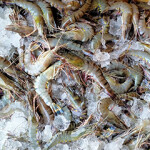Cermaq plans January launch of iFarm project, which uses image recognition to track individual salmon

Oslo, Norway-based Cermaq plans to launch its NOK 580 million (USD 64.7 million, EUR 58.3 million) iFarm project in January 2020, a major step forward for its effort to develop so-called “individualized farming” processes.
An agreement between Cermaq and Norway’s Directorate of Fisheries, as well as Cermaq’s partner in the project, BioSort, will result in the iFarm being implemented in four farms in Steigen, Nordland County, Norway. The first transfer of fish into the farms is planned for the fall of 2020, according to a Cermaq press release.
Cermaq’s iFarm project uses image recognition to identify individual salmon, which allows the company to track each fish’s growth and medical treatment. Besides optimizing performance, the technology also minimizes the need for human handling, which improves fish health and welfare.
“Individualized farming, which is at the heart of iFarm, truly addresses animal welfare,” Norwegian Food Safety Authority Chief Veterinary Officer Kristina Landsverk said. “If successful, this could have a great potential for the authorities if the administrations will have access to real-time information about [things like] biomass, lice situation, and disease conditions at each sea site.”
Cermaq acknowledged the agreement includes restrictions that means the project will not progress as far toward commercial testing as the company had originally planned, according to Cermaq Fish Health Manager Karl Fredrik Ottem, the leader of the iFarm project.
“The goal of the project is to develop prototypes with the central functions of iFarm to clarify whether it is technologically possible to operate individual salmon farming in net pens in the sea. An important part of the iFarm project is to document how … fish behavior and welfare will interact with the new technological solutions and functionalities,” Ottem said.
Cermaq said the project has a six-year time-frame, during which the company will develop construction specifications for its net-pens and its machine-learning solutions.
BioSort, which is partnering with Cermaq on the project and is developing iFarm’s sensor-based technology, has already conducted some testing at the Institute of Marine Research in Matre, Norway, according to BioSort CEO Geir Stang Hauge.
“The key in iFarm is that we monitor each salmon using machine vision, establishing a health record for each individual, and can sort aside the fish that needs follow up,” Hauge said. “This will be useful not only for farmers, but also for authorities and consumers. We are looking forward to getting started, and several new positions will now be filled.”
Photo courtesy of Cermaq






Share